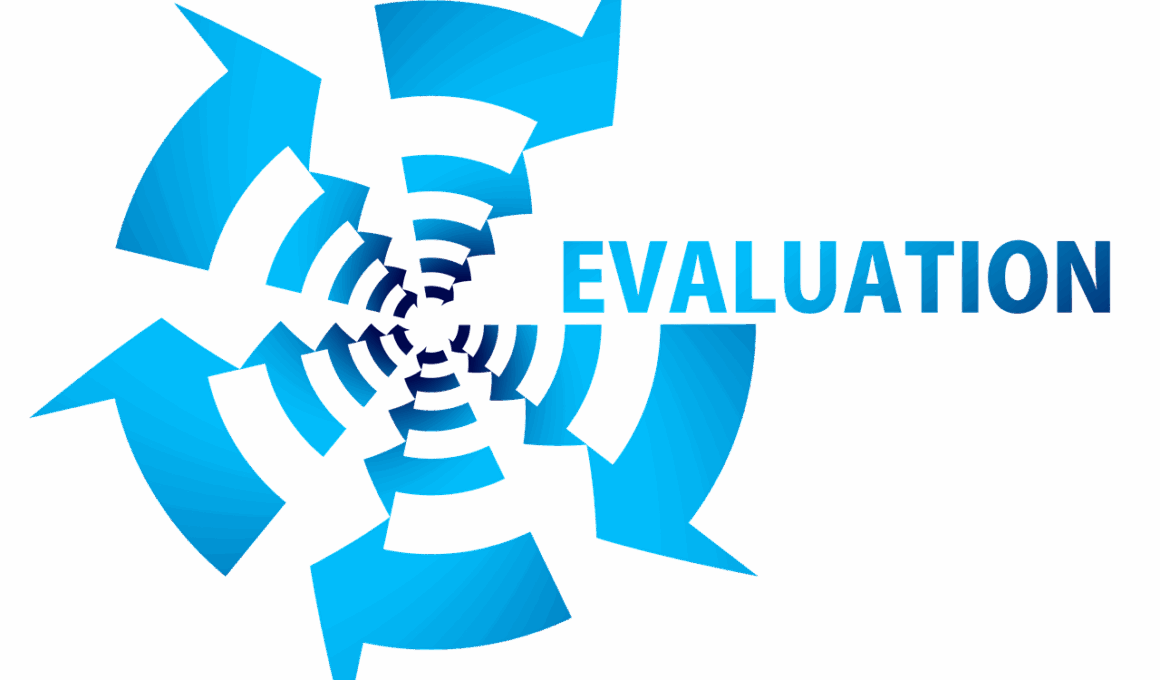Understanding Pre-Merger Board Assessments
Pre-merger board assessments are critical in mergers and acquisitions, enabling boards to evaluate their preparedness for the forthcoming merger. Understanding the roles and dynamics of the board is paramount. A thorough assessment involves reviewing the competencies of board members and evaluating their alignment with the strategic goals of the merger. Furthermore, boards must identify any potential gaps that could hinder the merger process. Effective assessments can highlight strengths, weaknesses, and opportunities to streamline merger success. Utilizing established frameworks can provide structured guidance to facilitate these evaluations. Additionally, using survey tools and one-on-one interviews can yield valuable insights into the effectiveness of the board’s operations and governance. Engaging external consultants can also enhance objectivity in the assessment process. This ensures a balanced view of the board’s performance. It ultimately aids in crafting a comprehensive action plan that addresses identified gaps. Stakeholders can then leverage this plan to optimize board engagement, lower risks, and enhance decision-making capabilities during the merger. Assessments not only strengthen board functions but also cultivate confidence among stakeholders. Ultimately, this creates a solid foundation for navigating complex merger processes.
Best Practices for Effective Assessments
To conduct effective pre-merger board assessments, certain best practices should be adhered to for maximizing outcomes. First, it’s vital to establish clear objectives tailored for the assessment process. Setting specific, measurable goals helps define the scope of the evaluation and directs focus on critical areas. Next, employing a mix of quantitative and qualitative methods can yield a richer understanding of board dynamics. Quantitative data from surveys should be complemented by qualitative insights gathered through interviews or focus groups. Regular assessments, ideally biannually, help track progress over time and continuously improve board effectiveness. Additionally, involving all board members in the assessment process fosters transparency and enhances buy-in. Conducting third-party assessments can also introduce new perspectives and eliminate potential biases that internal evaluations might incur. Following the completion of assessments, it’s important to communicate findings to the entire board and follow-up shortly with actionable recommendations. Developing detailed plans that align with the merger goals can guide boards through the transition smoothly. Finally, creating a culture of ongoing feedback and learning ensures that boards adapt to changing circumstances effectively and embrace best practices throughout the merger.
Utilizing Assessment Tools
Employing assessment tools is essential for preparing boards for mergers effectively. Various assessment tools facilitate both self-assessments and external evaluations, Each tool offers unique methodologies to gather data and insights. Survey platforms provide a convenient method for board members to provide honest feedback on their experiences and perspectives. Such platforms can include customizable questionnaires tailored to specific merger contexts. A robust 360-degree feedback tool can help gather valuable insights from multiple stakeholders. This includes not only board members but also key executives and management teams in the organization. Additionally, analytical software can assist in compiling, quantifying, and analyzing data efficiently, providing crucial trends and patterns that inform decision-making. Online platforms can enhance engagement and participation, creating an interactive environment for board members to share thoughts. Tools such as virtual workshops and strategic retreat sessions can also stimulate dialogue and collaboration among board members. Interactive methodologies encourage candid discussions on board dynamics and create a safe space for addressing sensitive issues. By leveraging these tools, boards can foster a culture of openness, improve understanding of roles, and prepare effectively for upcoming mergers.
Furthermore, the role of technology in board assessments cannot be overlooked. The integration of tech solutions enhances the efficiency of the assessment process significantly. By utilizing platforms with built-in analytics tools, boards can streamline data collection, making it easier to interpret and act upon the feedback. An effective assessment platform should be user-friendly, enabling board members to navigate through their assessments without overwhelming complexity. In addition, such platforms can store historical data, allowing boards to compare year-over-year progress conveniently. Digital assessments ensure that all board members have access to the same information, providing a level playing field during evaluations. Video conferencing tools and digital collaboration platforms can also play a crucial role, especially if the board is geographically dispersed. These tools allow for real-time discussions and feedback, enhancing collaborative efforts during assessments. As boards become more tech-savvy, there are opportunities to innovate traditional assessment methods creatively. Adapting to the digital landscape helps ensure that board assessments remain relevant. Ultimately, integrating technology into the assessment process promotes more profound insights, leading to informed decisions that enhance merger outcomes.
Engaging External Advisors
Engaging external advisors is another vital strategy in facilitating pre-merger board assessments efficiently. External advisors, including consultants and legal experts, bring valuable outside perspectives that internal members may miss. Their experience in conducting similar assessments across various industries enhances the quality of the evaluation. Selected advisors should have a deep understanding of the organization’s business, culture, and market landscape to provide pertinent insights. Moreover, they can help identify not just operational issues but also strategic risks related to the merger. By leveraging their expertise, boards can gain a comprehensive view of their effectiveness and governance practices. Engaging external advisors in planning and conducting assessments can also promote unbiased assessments, which is essential for fostering credibility among board members. They can offer structured frameworks and tools that align with best practices in the industry. After conducting the assessment, these advisors can present findings and suggest improvement plans tailored specifically for the board. Ultimately, collaboration with external experts creates a synergy that enhances the board’s overall effectiveness. This will reassure stakeholders, ensuring them that the board is committed to making informed, strategic decisions during the merger.
Another considerable advantage of involving external advisors relates to their ability to facilitate challenging conversations among board members. Often, sensitive topics merit delicate handling, and third-party facilitators can foster an environment conducive to open discussion. They empower board members to express concerns freely while focusing on the overarching goals of the merger. These sessions can unveil underlying tensions and unearth deeper issues that may be hampering the board’s efficiency. Furthermore, these advisors can help develop consensus-building strategies, ensuring that all voices are heard and respected. External perspectives can also introduce innovative ideas and best practices adopted by other corporations during similar processes. This can empower boards to rethink their strategies and decision-making approaches significantly. Post-assessment follow-up with these advisors is equally crucial, enabling boards to ensure accountability and measure progress. Expert guidance throughout the merger process can prevent pitfalls and misunderstandings. By providing a roadmap for improvement, external advisors help boards navigate complexities while remaining aligned with their mission and vision. Ultimately, this engagement enhances overall governance and prepares boards for successful merger integration.
Conclusion and Future Directions
In conclusion, pre-merger board assessments are fundamental for the health and success of merger negotiations. They align board competencies with strategic objectives, identify gaps, and ensure readiness for overcoming challenges in the merger process. Best practices such as setting clear objectives, employing diverse assessment tools, and engaging external advisors can significantly enhance the effectiveness of these assessments. As organizations navigate the complexities of mergers and acquisitions, it is vital to embrace continuous improvement, learning, and adaptation. Exploring new methodologies and technologies is crucial for remaining relevant in this evolving landscape. Future assessments may incorporate advanced analytics and artificial intelligence to derive deeper insights into board dynamics. In a digital-driven world, leveraging technology can empower boards to make data-driven decisions, remain agile, and enhance governance practices during mergers. Ultimately, pre-merger board assessments position organizations better, fostering a culture of excellence, accountability, and responsiveness. The commitment to these assessments confirms the board’s understanding of the complexities ahead and positions them to succeed on their merger journey.
This dedication is key to thriving amid rapid market changes and evolving shareholder expectations. Understanding that merger success isn’t just about financial metrics; the quality of governance plays a pivotal role as well. Implementing structured board assessments fosters trust and transparency, not only within the board itself but also among stakeholders. Transparency in the assessment process communicates that the board is committed to ongoing improvement and openness. Adopting these practices creates a robust framework that empowers boards to fulfill their responsibilities effectively. Ultimately, this investment in pre-merger assessments is an investment in the future success of the organization. By prioritizing these practices and embracing the necessary tools, boards can enhance their effectiveness and contribute significantly to globally competitive and successful mergers. This thorough approach ensures that boards remain proactive rather than reactive, preparing them to face challenges with confidence. As organizations embark on these transformative journeys, strong and effective boards are the cornerstone of lasting success in mergers and acquisitions.





